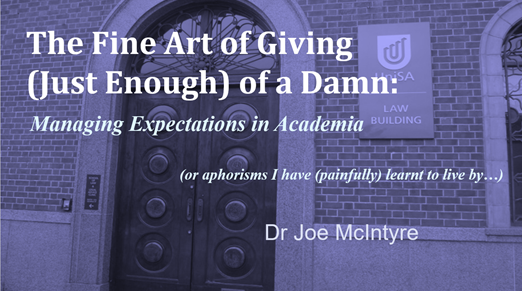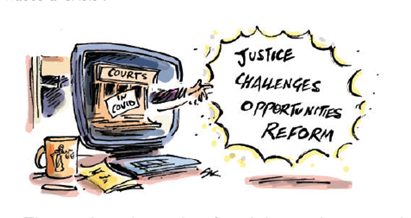So #lawtwitter, I have been harping on a bit about #onlinelearning in #pandemicademia - (a short thread on assessment)
For the last 4 yrs, I have had an online quiz as my 1st assessment in my admin course. It is deliberately technical, precise and requires the readings
For the last 4 yrs, I have had an online quiz as my 1st assessment in my admin course. It is deliberately technical, precise and requires the readings
It has commonly had a 30% fail rate - because students hate details, & don't pay attention. I use it as a wake up call, reminding them that details matter - in admin law, & in practice (this is a final year course)
I have always allowed those who fail to take a sup for 50% max
I have always allowed those who fail to take a sup for 50% max
As it is only worth 15% of overall grade, I have found the little bit of terror helps set them up for course, as they take everything a bit more seriously.
However, it has a slightly scary reputation, and does cause some stress. In normal circs this balance seems right
However, it has a slightly scary reputation, and does cause some stress. In normal circs this balance seems right
This year however, this approach seems deeply inappropriate -the last thing they need is any additional sources of stress
So this time, I initially gave them double the time to do the test.
Then I decided that sups now was a bad idea. So I allowed them unlimited attempts in over the weekend, with the highest grade stand.
Then I decided that sups now was a bad idea. So I allowed them unlimited attempts in over the weekend, with the highest grade stand.
The results have been striking. Yes, no one failed, and the average grade went from 58% to 83%. But, what struck me was the perseverance. On average students attempted the quiz 4.5 times. One student took 12 attempts because they wanted 100%.
When discussing afterwards students were excited - instead of a cause of stress it energised them. They reported how much they had learnt through the exercise. The repitition forced them to consider the details
I have had a bunch of emails thanking me - both for demonstrably considering their well-being and reducing stress, and for the format itself
Now this might all end up backfiring. With out the shot across the bows they may perform badly later. I will have to moderate later to avoid grade inflation.
But right now this feels like a real win (And we all need a few of those right now)
But right now this feels like a real win (And we all need a few of those right now)
I am interested in your thoughts on this model (unlimited attempts etc), whether it undermines the integrity of the assessment regime, what message it sends, and whether I should look at continuing.
Thanks #auslaw #lawtwitter
Thanks #auslaw #lawtwitter
• • •
Missing some Tweet in this thread? You can try to
force a refresh










